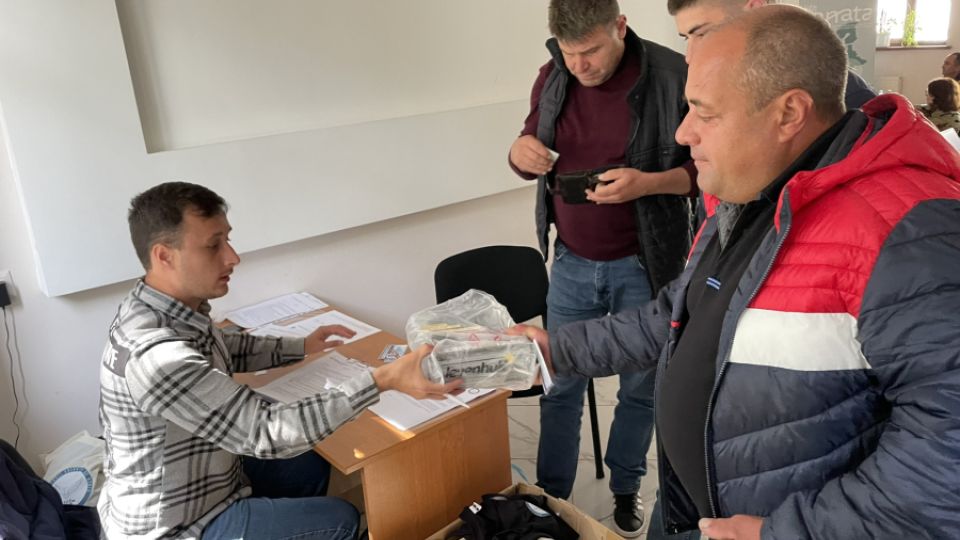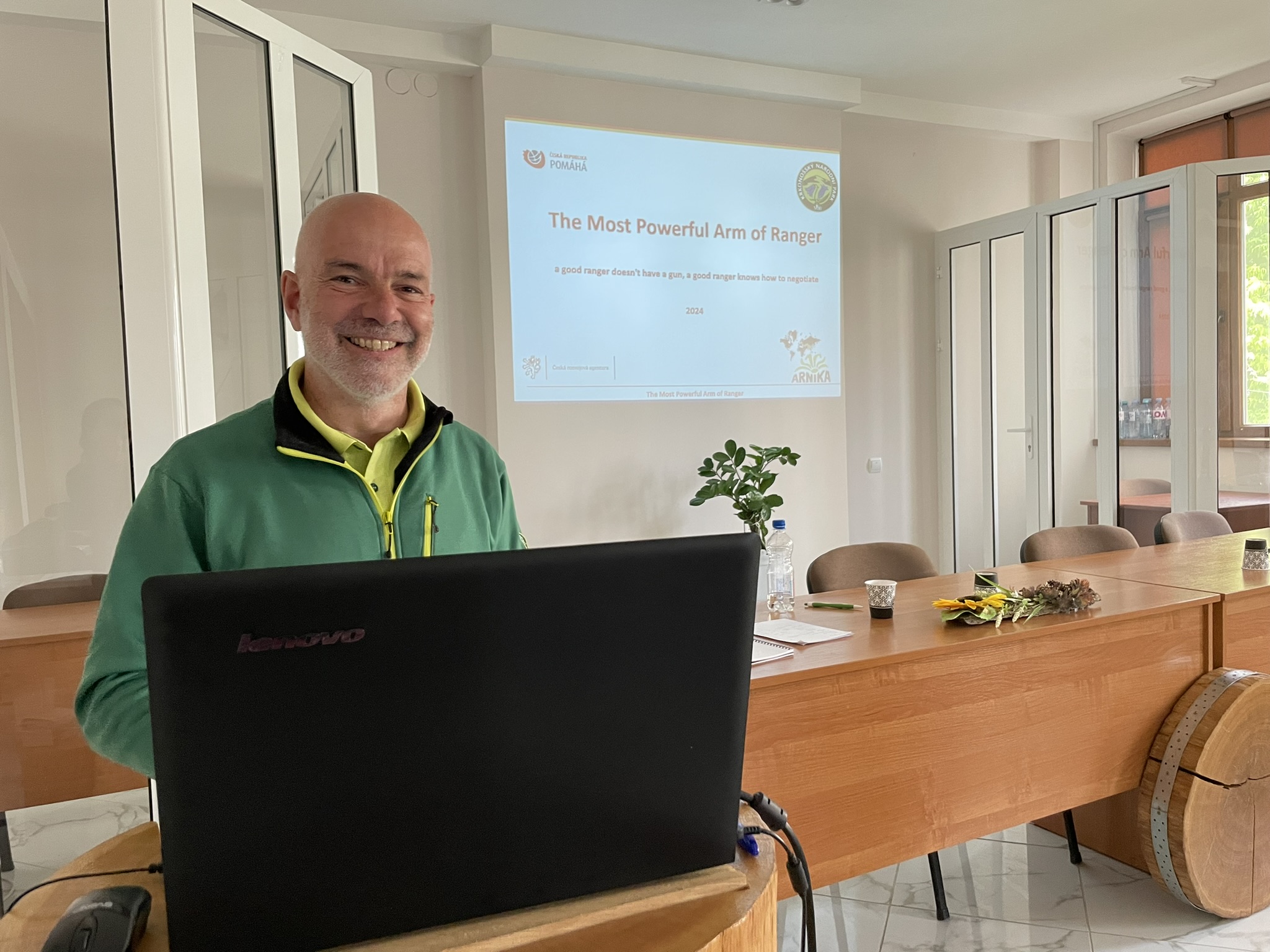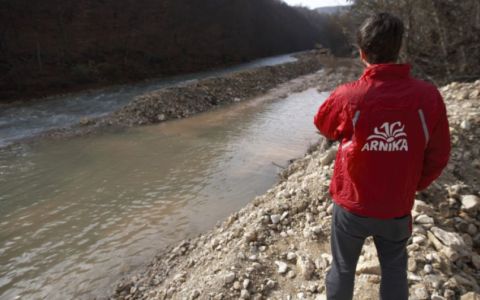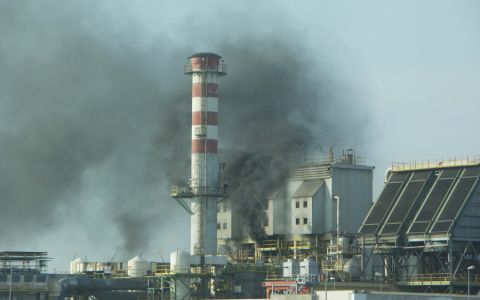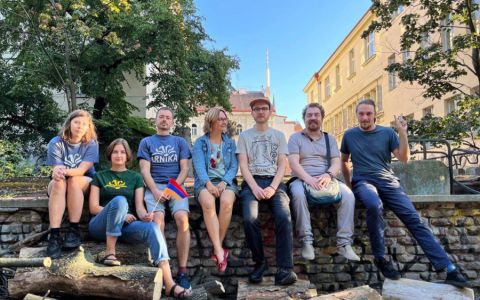Several dozens Moldovan volunteer rangers met in Chisinau and Tipova in April, May, August and November to discuss problems related to their work and to improve their skills. During the workshops organised by non-governmental organisations Arnika (the Czech Republic) and Biotica (Moldova) and supported by the European Ranger Federation, the rangers also received some basic equipment to improve their effectiveness and recognition.
The first workshop took place on 13 April at the Institute for Forestry Research and Development (ICAS) and was opened by the Director of the Inspectorate for Environmental Protection, the institution responsible for the rangers. Speakers included a representative of ICAS, then a non-governmental organisation Eco-TIRAS and both current, potential and future volunteer rangers. The participants discussed the working conditions of volunteer rangers and their relationship with the public. Mr. Bulmaga from the Inspectorate agreed with the need to strengthen the legal protection, rights and duties of volunteer rangers in order to increase their safety and the quality of their service.
Mr. Trombitsky (Eco-TIRAS) presented aspects of fish poaching, a phenomenon that all state institutions, including the National Agency for Food Safety, are powerless to fight - a fact that is regularly reflected in the sale of riverine fish species during the period when fishing is banned.
In the same vein, we raised the issue of the risks for both volunteer rangers and ordinary people of coming into conflict with, or making observations, about the derisive behaviour of some influential figures in law enforcement and the judiciary, who subsequently abuse the judicial system to take revenge on the rangers.
Mr. Grati (ICAS) summarised the aspects of environmental protection in the forests, noting that the only condition for good organisation and monitoring is a respect for forest management, which is unfortunately lacking or ignored in state-owned areas.
The second workshop took place on 20 May and brought together experts from the Czech Republic and Moldova to discuss the involvement and activities of volunteer rangers in nature conservation, their work problems and suggestions for improvement. After a lively debate with Mr. Bulmaga, who reiterated the Inspectorate's commitment to preparing a legal act that would provide better protection for volunteer rangers, Mr. Nastasi, representative of the recently established Moldovan Volunteer Rangers Association, described the challenges facing rangers today.
Mr. Skalka, a former Czech professional ranger and currently the Czech representative of the Krkonoše National Park, then shared his experience of nature conservation in our country, including the role, capacities, roles and duties of Czech volunteer and professional rangers. The event was also an opportunity to hand over some light equipment to the current Moldovan volunteer rangers - a cap with a badge, a T-shirt with a volunteer ranger logo, a first aid kit and binoculars, which will help the volunteers to be better equipped, more easily recognised and hopefully more respected.
The third workshop on development of environmental volunteering and the network of rangers in Moldova and abroad took place in in Chisinau on 22nd August with the presence of Michael Grossmann (European Ranger Faderation - ERF). His presentation provided participants with valuable insights into the objectives and responsibilities of the ERF, as well as the diversity of ranger roles across Europe. His contribution was crucial in understanding how European ranger networks operate and how international best practices can be integrated into activities in Moldova.
The fourth workshop on tourist trails arrangement and marking was organised in Tipova on 2nd November, also with the presence of Michael Grossmann and Valeriu Istrati, a Moldovan expert on trail marking. Participants visited one of the famous Tipova canyons and discussed potential measures to be implemented in order to create a trail that would help the visitors of the natural reserve but also kept the natural values untouched.
We organised all the events as part of the "Nature 2000 in Moldova: Promoting the European approach to nature conservation in Moldova" and "Czech support for better management of protected areas in Moldova", under the CZ Ministry of Foreign Affairs´ Transition Promotion Programme and the UNDP Challenge Fund.




